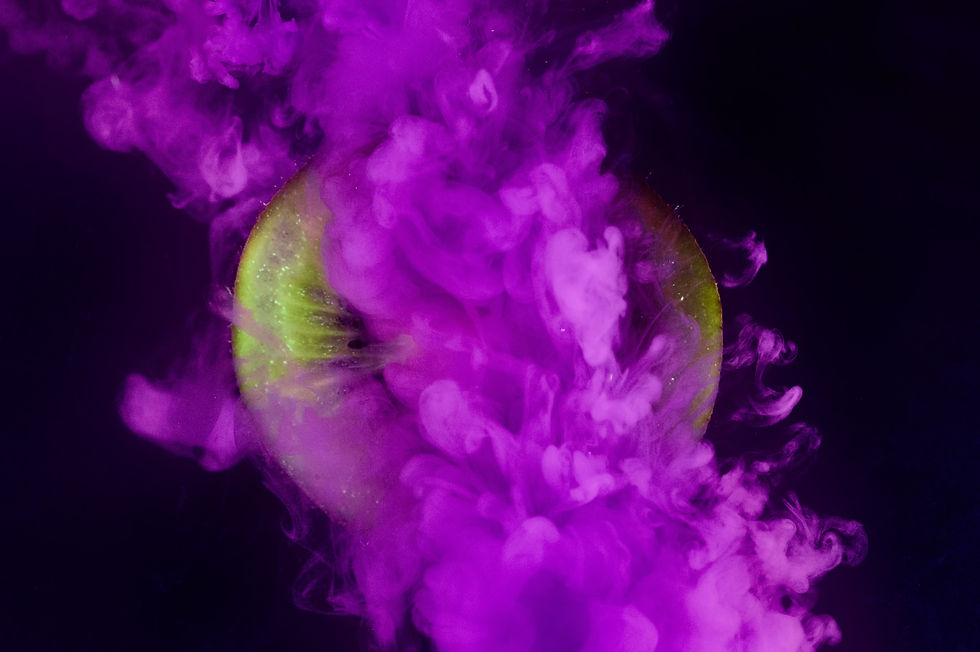Take Advantage of a Good Brain Wash
- Gina Greenlee, Author

- Aug 20, 2018
- 3 min read
Updated: Mar 15, 2019

At 10 pm I awoke from a 4-hour nap. Could’ve tried to sleep for the night, then thought, why waste a good brain wash?
We all know how much better we feel after we sleep. We’re “rested,” we say. Actually, our brain’s been cleaned. Just as every cell requires nutrients to fuel it, every cell also produces waste as a byproduct. Waste clearance is a problem that each organ must solve. Enter, the lymphatic system, a second parallel network of vessels that extends throughout the body. It takes up proteins and other waste from spaces between the cells, collects and then dumps them into the blood for disposal.

Here’s the thing: There are no lymphatic vessels in the brain, an intensely active organ that uses a quarter of the body’s entire energy supply and produces a correspondingly large amount of waste that must be efficiently cleared. So the approach that the rest of the body takes to clearing away its waste doesn’t work in the brain. Why? “The brain is enclosed in a rigid skull and it’s packed full of cells, so there is no extra space inside it for a second set of vessels like the lymphatic system,” says research scientist Jeff Iliff in his TED TALK, One More Reason to Get a Good Night’s Sleep.
The brain’s solution to its waste clearance problem is inside the brain itself, not in a separate network of vessels. “It was unexpected, ingenious and also beautiful,” Iliff says of his research team’s discovery. Rather than a separate system of (lymphatic) vessels, the brain uses a specialized network of plumbing that organizes and facilitates waste removal: repurposing one set of vessels, the blood vessels, to take over and replace the function of a second set.
Clever. And why wouldn’t it be? It’s the brain.

Its large pool of clean, clear fluid, called cerebrospinal fluid (CSF), also fills the space surrounding the brain. Built up waste inside the brain moves out to the CSF, which gets dumped into the blood.
Iliff’s research shows that “no other organ takes this approach to clearing waste from between its cells. This is a solution that is entirely unique to the brain.” And here’s where my 4-hour nap comes in: the brain’s unique cleaning process happens only when we sleep.
Throughout my life friends and family have teased me about my requirement for, and exaltation of at least 8 hours of sleep nightly. Ideally, 10 hours get my brain squeaky clean. Less than 8 hours of sleep guarantees a nap, the equivalent of washing a few delicates in the sink between serious machine laundering. Seems my sleep habits are in sync with cutting edge science.
In Iliff’s research, during sleep, MRI scans show CSF rushing through the brain. Also, “brain cells seem to shrink, opening up spaces in between them, allowing fluid to rush through and waste to be cleared out.” Which is why, when I wake up feeling like Atlas, I’ll be using the effects of my brain’s unique plumbing system to advantage.

6 Ideas: Leverage Your Nightly Brain Wash
√ Idea #1: Create first thing. It’s not coinkidink that most high-performing individuals in all walks of life – business, athletics, academics and the arts – engage their craft immediately upon awakening. Most also nap daily. So much for the aphorism, “You can sleep when you’re dead.”
√ Idea #2: Trying on a new business idea? Forget late afternoon. Noodle that thing upon rising and take it to the next level.
√ Idea #3: Any action you’ve been waffling on? Sleep first. Then decide.
√ Idea #4: Willpower is a limited resource. You have less of it as the day wears on. By day’s end many of us just want to Netflix. Upon awakening, when your brain is squeaky clean, is the time to advance game-changing life goals.
√ Idea #5: Toss baggage: clothes, ideas and relationships that no longer serve, after you’ve slept. That’s why late night texts and emails are bad ideas. Your brain’s filthy.
√ Idea #6: Risk. It needn’t be huge. That’s the thing about risk. You can practice it daily, incrementally and usually to stellar effect. Right after you’ve had a good sleep.
◊ ◊ ◊
For more on the neuroscience of writing productivity, try Formula 5: Brain Science Your Way to Batch System Writing.




